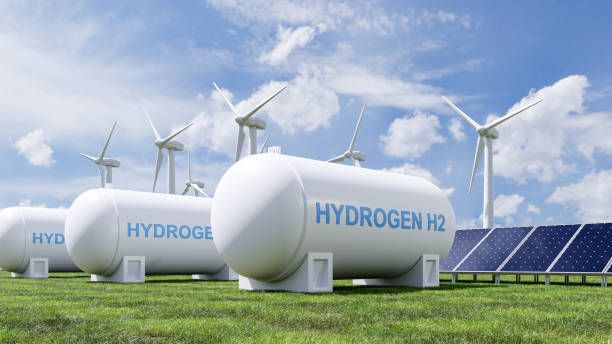The European Commission has approved, under EU State aid rules, a fourth Important Project of Common European Interest (‘IPCEI’) to support research, innovation and the first industrial deployment in the hydrogen value chain. The project contributes to the EU’s target of 90% reduction of emissions from the mobility and transport sectors, in order for the EU to become climate-neutral by 2050. By fostering the use of hydrogen as a fuel, it will also help achieve the objectives of the European Green Deal, the EU Hydrogen Strategy and the Sustainable and Smart Mobility Strategy.
The project, called ‘IPCEI Hy2Move‘, was jointly prepared and notified by seven Member States: Estonia, France, Germany, Italy, Netherlands, Slovakia and Spain.
The Member States will provide up to €1.4 billion in public funding, which is expected to unlock additional €3.3 billion in private investments. As part of this IPCEI, 11 companies with activities in one or more Member States, including small and medium-sized enterprises (‘SMEs’) and start-ups, will undertake 13 innovative projects.
IPCEI Hy2Move will cover a wide part of the hydrogen technology value chain, by supporting the development of a set of technological innovations, including:
- The development of mobility and transport applications to integrate hydrogen technologies in transport means (road, maritime and aviation). This includes, for example, fuel cell vehicle platforms for use in buses and trucks.
- The development of high-performance fuel cell technologies, which use hydrogen to generate electricity with sufficient power to move ships and locomotives.
- The development of next generation on-board storage solutions for hydrogen. For the use in aircraft, lightweight, yet robust hydrogen tanks are necessary ensuring safety and efficiency in flight conditions.
- The development of technologies to produce hydrogen for mobility and transport applications, in particular for supplying hydrogen refuelling stations on-site with pressurised, 99.99% pure fuel-cell-grade hydrogen.
IPCEI Hy2Move complements the first three IPCEIs on the hydrogen value chain. The Commission approved IPCEI ‘Hy2Tech’ on 15 July 2022, which focuses on the development of hydrogen technologies for end users. IPCEI ‘Hy2Use’ was approved on 21 September 2022 and focuses on hydrogen applications in the industrial sector. IPCEI ‘Hy2Infra’, approved by the Commission on 15 February 2024, concerns infrastructure investments, which are not covered by the first two IPCEIs. Hy2Move focuses exclusively on specific challenges and objectives that arise for hydrogen technology in mobility and transport applications.
The completion of the overall IPCEI is expected by 2031, with timelines varying in function of the individual projects and the companies involved. Around 3,600 direct jobs are expected to be created, and many more indirect ones.
The Commission assessment
The Commission assessed the proposed project under EU State aid rules, more specifically its 2021 Communication on Important Projects of Common European Interest (‘IPCEI Communication’). Where private initiatives supporting breakthrough innovation fail to materialise because of the significant risks such projects entail, the IPCEI rules enable Member States to jointly fill the gap to overcome these important market failures. At the same time, the IPCEI rules ensure that the EU economy at large benefits from the supported investments and limit potential distortions to competition.

Commission adopts limited prolongation of State aid crisis tools to further support agriculture and fisheries sectors |
The Commission has found that the IPCEI Hy2Move fulfils the required conditions set out in its Communication. In particular, the Commission concluded that:
- The project contributes to a common objective by supporting a key strategic value chain for the future of Europe in particular contributing to the objectives of the European Green Deal, the EU Hydrogen Strategy and the Sustainable and Smart Mobility Strategy.
- All 13 projects part of the IPCEI are highly ambitious, as they aim at developing technologies and processes that go beyond current technology and will allow major improvements notably in the areas of mobility and transport applications, fuel cells, on-board hydrogen storage and generation of hydrogen for the use in mobility and transport.
- The project also involves significant technological and financial risks, and public support is therefore necessary to provide incentives to companies to carry out the investment.
- Aid to individual companies is limited to what is necessary, proportionate and does not unduly distort competition. In particular, the Commission has verified that the total planned maximum aid amounts are in line with the eligible costs of the projects and their funding gaps. Furthermore, if large projects covered by the IPCEI turn out to be very successful, generating extra net revenues, the companies will return part of the aid received to the respective Member States (claw-back mechanism).
- The results of the project will be widely shared by participating companies with the European scientific community and industry beyond the companies and Member States that are part of the IPCEI, including through conferences, publications, access to pilot and production facilities, or licensing of intellectual property rights. As a result, positive spill-over effects will be generated throughout Europe.
On this basis, the Commission concluded that the project is in line with EU State aid rules.
Funding, participants and structure of the IPCEI
The project will involve 13 projects of 11 companies in one or more Member States, including small and medium-sized enterprises (‘SMEs’) and start-ups.
The participating companies will cooperate with each other as well as with the associated partner Breuer Technical Development, a Belgian SME, and with over 200 indirect partners, such as universities, research organisations and SMEs across Europe.
Germany, Slovakia and Spain included their participation in the IPCEI Hy2Move in their Recovery and Resilience Plans and thus can partly fund their projects through the Recovery and Resilience Facility.
More information on the amount of aid to individual participants will be available in the public version of the Commission’s decision once the Commission has agreed with Member States and third parties on any confidential business secrets that need to be removed.
Background
The Commission’s approval of this project forms part of the wider Commission efforts to support the development of an innovative and sustainable European hydrogen industry.
In addition to the IPCEI Hy2Move, the Commission approved also the IPCEI Med4Cure. The Commission’s decisions concern the ninth and the tenth integrated IPCEIs approved under EU State aid rules. They are approved on the basis of the 2021 IPCEI Communication, setting out criteria under which several Member States can support transnational projects of strategic significance for the EU under Article 107(3)(b) of the Treaty on the Functioning of the European Union. The Communication aims at encouraging Member States to support highly innovative projects that make a clear contribution to economic growth, jobs and competitiveness.
The IPCEI Communication complements other State aid rules such as the Climate, Energy and Environment Aid Guidelines, the General Block Exemption Regulation and the Framework for State aid for research and development and innovation, which allow supporting innovative and green projects whilst ensuring that potential competition distortions are limited.
As part of an effort to support a transparent, inclusive, and faster design of IPCEIs, the Commission published, on 17 May 2023, a Code of Good Practices on DG Competition’s dedicated IPCEI website. In addition, the Commission has set up the Joint European Forum for Important Projects of Common European Interests (JEF-IPCEI). The objective of the forum is to identify areas of strategic EU interest for potential future IPCEIs and to increase the effectiveness of the IPCEI process. The JEF-IPCEI brings together experts from Member States and the Commission services, as well as representatives from the industry, academia, and other stakeholders where relevant.
To further streamline and simplify the roll-out of IPCEIs, on 23 June 2023, the Commission introduced an amendment to the General Block Exemption Regulation (GBER) whereby R&D projects related to multi-country projects such as IPCEIs can receive aid up to €50 million without requiring notification to the Commission. At the same time, these projects are still recognised as part of the ecosystem created by an IPCEI.
The non-confidential versions of the decisions will be made available under the case numbers SA.104434 (Slovakia), SA.104435 (Spain), SA.104440 (Netherlands), SA.104442 (Estonia), SA.104453 (Italy), SA.104668 (France) and SA.104676 (Germany) in the State Aid Register on the competition website once any confidentiality issues have been resolved. New publications of state aid decisions on the internet and in the Official Journal are listed in the State Aid Weekly e-News.
More information: European Commission






Leave a Reply